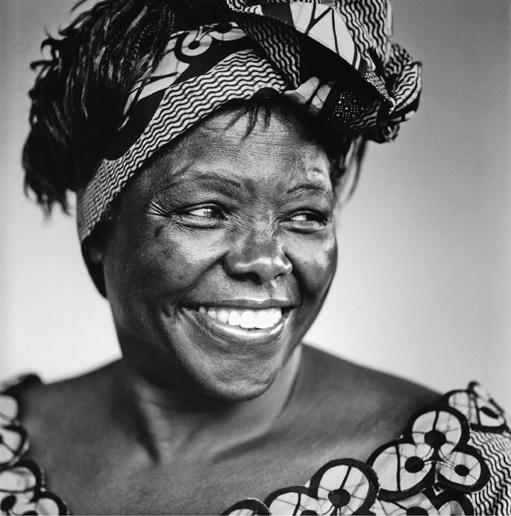By Anthony Wojtkowiak
The Critical Eye: Reviews of Books, Music And Other Diversions
MIAMI—Visiting Luanda during Angola’s civil war in the early 1980s, Wangari Maathai noticed something odd about the markets: Very few people were shopping. The vegetables seemed wild rather than farm cultivated. Fish were imported, rather than local.
In the mornings she found people foraging for crabs on the beach. The war, she said, had a devastating, lasting impact. While Angola suffered, trawlers from what was then the Soviet Union scooped up fish off the African coast. Then they shipped the fish to countries around the world, including, – you guessed it – Angola.
To Maathai, a Nobel Prize winner writing her latest book, The Challenge of Africa, this degradation of people and the economy of Angola is an example of how bountiful resources have been devastated, leaving Africa saddled with some of the world’s most extreme poverty. Another factor in the continent’s despair, she says, is the rapaciousness of many of its leaders. In one example, she says that Nigeria collected $400 billion in oil sales over many years, but that almost all of the money was siphoned off by corrupt officials. If Africa is ever to develop, she says, Africans must demand a culture of ethical leadership, must stand up for themselves, and use natural riches like water and oil responsibly and accountably.
Maathai, who won her Nobel Prize for work on the environment in Kenya, says that a mere seven percent of arable land in Africa is irrigated. Most African farmers rely on rain – which may or may not come – to nourish their fields. They work small plots and follow antiquated practices. Maathai describes a woman in Cameroon who digs irrigation canals that shoot straight down her hillside farm, washing away rich topsoil that will be needed next planting season, “making it less likely that anything would grow on the hillside in the future.”
In Kenya, the Tana River is the main source of hydroelectric power and drinking water. But the Tana has been shrinking, partly because of widespread deforestation that reduces rainfall. As the river has diminished, Maathai says, women who routinely walk hours to get drinking water for their families have had to find other sources of water and walk farther. Maathai says that if the deforestation continues – and there is no sign of let up – there will be no water to sustain the savannahs, where Africa’s wildlife lives. As a result, she says, tourism, which is vital to Kenya’s economy, could crumble.
One of the worst examples of deforestation, she says, is in the Democratic Republic of the Congo. There the government has permitted companies from China, Britain, and the United States to haul off the trees. The deforestation, she says, disturbs the atmosphere over the Congo River Basin, affecting weather patterns worldwide.
Maathai says that when Africans are empowered and impassioned to work together, Africa will develop. As a member of Kenya’s parliament, she was asked to create a committee of 15 of her constituents. Instead, she says, she gathered 555 volunteers into 37 committees of 15 members each. They worked to improve education, roads, irrigation, and other aspects of their communities.
Maathai says the committees avoided the corruption usually associated with power in Africa because of a simple process of transparency that she created: monitoring committees that kept tabs on community volunteers and sent written progress reports to Maathai.
Her system, she says, created a true partnership “between the people and their leadership against poverty and passivity.” It is that kind of partnership, Maathai says, that promises to enable Africans to deploy what she considers to be Africa’s greatest resource: the Africans themselves.
The Challenge for Africa
By Wangari Maathai
289 pp. Pantheon Books, $25.00
Read Other Reviews…

